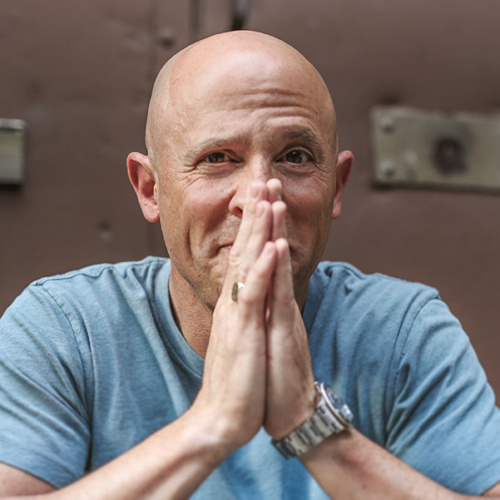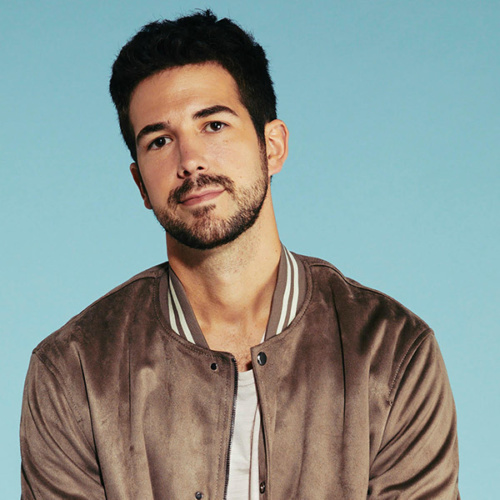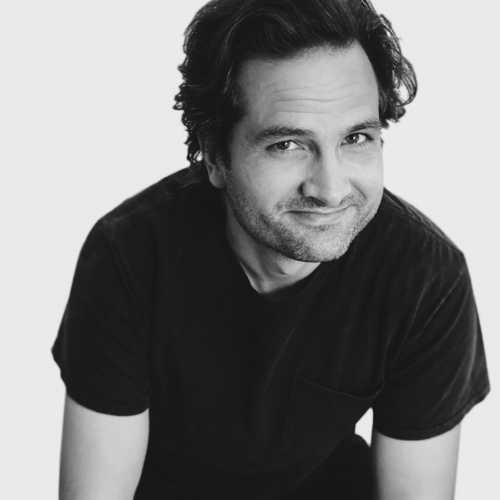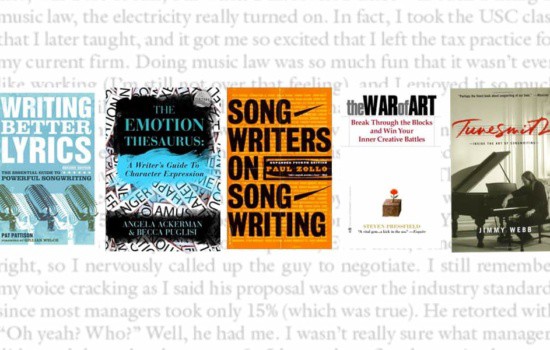A songwriter is part lyricist, part composer, part business owner. Beyond crafting melodies, you’ll pitch to artists, land syncs for TV, and monitor music publishing statements. Diversify early—film, games, and branded content pay the rent while you chase that breakout single.
Music Career Finder
Start Here:
Songwriting Career Guide: From Blank Page to Hit Record

- Great songs start with simple, singable ideas—refine later.
- Finish drafts quickly; perfection happens in rewrites.
- Collaboration multiplies creativity and industry connections.
- Protect your copyright early; register before you release.
- Use tech as a tool, not a crutch—AI can’t feel for you.
- Consistency beats inspiration; write on a schedule.
- Introduction
- What Does a Songwriter Actually Do in 2025?
- Know Your Instrument
- Find Your Genre
- Choose a Song Structure
- Understand Melody & Motif
- Understand Chords
- Be Authentic
- Be Patient
- How to Bust Writer’s Block
- Step Away
- Write With Others
- Write Something Else
- erspective Flip
- Timed Sprints
- Five Melody Hacks the Pros Use
- Lyric Writing: From Diary to Universal
- 17 Tried‑and‑True Songwriting Exercises
- The Emotional Payoff
- The Business Side Nobody Tells You
- Leveraging Technology (Without Losing Your Soul)
- AI and Songwriting
- Songwriting in the TikTok Era
- Risks, Downsides & Hard Truths
- Next Steps
- Further Reading & Watching
- Final Word
- Sources
Ever stare at a blank page wondering how writers like John Mayer or Phoebe Bridgers spin heart‑stopping songs out of thin air? Ready to learn the exact mindsets, exercises, and tech they use—plus the hard truths no one posts on Instagram
This guide unpacks everything you need to know about songwriting in 2025, from choosing chords that hook listeners to navigating AI, streaming royalties, and the mental marathon of finishing great work. We keep the wisdom from our original expert interviews and add fresh insights you won’t find in typical listicles. Let’s get writing.
What Does a Songwriter Actually Do in 2025?
Know Your Instrument
Piano or guitar lets you write harmony and melody simultaneously; learn enough theory to communicate but not so much that it paralyzes you.
Find Your Genre
Ben Johnson (Charlie Puth, Justin Timberlake) swears by imitation as education: Rewrite a favorite track, then twist the melody or lyric until it feels like yours.
Choose a Song Structure
Verses, choruses, bridges—grab a familiar song structure and bend it. Audiences love surprise framed by something they recognize.
Understand Melody & Motif
Stepwise motion plus one unexpected leap lodges tunes in memory. Write the chorus first to anchor your idea.
Understand Chords
Major for lift, minor for longing. Hybrid voicings (sus2, add9) give freshness without confusing listeners.
Be Authentic
Your weird phrasing is your fingerprint—keep it. Judy Collins reminds us authenticity feels “like falling in love.”
Be Patient
Peter Zizzo notes hits may bloom “decades down the road,” so adopt Cliff Goldmacher’s mantra of being “macro‑patient, micro‑impatient.”
How to Bust Writer’s Block
Step Away
Walk, shower, cook—dopamine resets creativity.
Write With Others
Online collab servers on Discord and communities like SongTown pair rookies with publishers.
Write Something Else
Switch to a poem or beat; return with fresh ears.
erspective Flip
Change narrator, tense, or mood; tragedy → triumph instantly refreshes a stuck lyric.
Timed Sprints
Pomodoro (25/5) forces decisions; perfectionists hate it—which is why it works.
Pomodoro in plain English
- The Pomodoro Technique is a time‑management method created by developer Francesco Cirillo. You set a timer for 25 minutes of laser‑focused work, then take a 5‑minute break. Each 30‑minute block is called a Pomodoro (Italian for “tomato,” named after Cirillo’s kitchen timer).
- Why “25 / 5”? The numbers are simply the two parts of each block: 25 minutes on, 5 minutes off. After four Pomodoros you take a longer break (15‑30 minutes) to reset your brain.
Why it “forces decisions”:
- A ticking timer creates gentle urgency, nudging you to choose a chord progression or lyric instead of endlessly browsing options.
- Because you know a short break is coming, you resist distractions: “I can check texts in five minutes.”
- Over several rounds you see tangible progress, which builds momentum.
Why perfectionists hate (and need) it:
- Perfectionists tend to tweak lines forever. The Pomodoro clock says, “Ship a rough draft now; polish later.” That boundary feels uncomfortable—yet it prevents spiraling into over‑editing and helps you actually finish songs.
How songwriters use it in practice:
- Set a goal for one 25‑minute sprint—e.g., “Write a verse melody,” “Draft three hook titles.”
- Work heads‑down until the timer rings; no fixing punctuation, no new coffee run.
- Break for five—stretch, walk, hydrate.
- Repeat three more times, then take a longer 20‑minute break.
- Review & revise during a fresh Pomodoro later, when your editing brain is sharper.
Hey, what do you think about trying our new Music Career HelperMusic Career Helper really quick? It’s totally free and could help get your career moving fast! Give it a try. It’s totally free and you have nothing to lose.
Five Melody Hacks the Pros Use
- Improvise over one chord loop** and record everything.
- Learn the modes**—Dorian or Mixolydian flavors pop hooks.
- Start with the hook**; verses answer questions the chorus raises.
- Insert a single interval jump** (a 4th or 6th) for lift.
- Strategic repetition**: repeat rhythm, change pitch.
Post Malone top‑lines over beats and beer, proving spontaneity can spark global smashes.
Lyric Writing: From Diary to Universal
John Mayer says songwriting is matching “music, lyrics and idea like socks.” Start with a title that teases conflict; ask Who, What, Where, Then What? Use concrete images over abstractions—“coffee gone cold” beats “sadness.”
17 Tried‑and‑True Songwriting Exercises
- Keep a swipe file of titles.
- Stream‑of‑consciousness pages each morning.
- Rewrite a public‑domain poem into a chorus.
- Limit instrument choice to voice + one chord.
- Use a rhyming dictionary only after first draft.
- Borrow a chord progression from Mozart—yes, really.
- Speed‑write a full lyric in 10 minutes.
- Demo every idea; audio memory is flaky.
- Play the “re‑mark‑able” test—wait for unsolicited feedback.
- Apply the Pomodoro Technique to arrangement (more on this later).
- Write 50 songs this year; Ed Sheeran calls it flushing the dirty tap.
- Walk or drive in silence—Aaron Espe’s sure‑fire idea well.
- Sit in a different chair; environment cues the brain.
- Shoot for one honest emotion per song—FINNEAS.
- Analyze three current chart hits weekly.
- Transcribe a melody by ear daily.
- Record your dreams; Paul Simon’s best hooks arrived at 3 a.m.
The Emotional Payoff
It’s not range but truth that moves people; Kim Gordon recalls Neil Young’s advice: authenticity wins. Ask: *What do I want the listener to feel in verse 1 versus the last chorus?*
The Business Side Nobody Tells You
- Royalties are split. Register compositions with ASCAP or BMI, and your recordings with SoundExchange.
- Mechanical rate hike. The new settlement bumps U.S. streaming mechanicals to 15.35% by 2027—read the fine print.
- American Music Fairness Act. Terrestrial radio may soon pay performance royalties—plan for new revenue streams.
- Copyright first. Upload a rough iPhone demo to the U.S. Copyright Office eCO system before sharing.
For more on contracts and splits, see our deep‑dive on music publishing.
Leveraging Technology (Without Losing Your Soul)
DAWs like Ableton Live’s new “Key Detector” suggest compatible scales; LyricStudio organizes drafts; Splice Bridge auditions samples in key. Treat AI co‑writers like Aaron Espe’s “dumb intern.”
AI and Songwriting
Tools such as Suno v4.5 can generate stems, but lawsuits loom. Use AI for scratch ideas, not final masters; you still need human emotion.
Songwriting in the TikTok Era
If you’re hoping to write the next viral hit, you’d better grab listeners in the first 15 seconds or less. TikTok’s short-form video culture has upended traditional songwriting norms. Songs are not only shorter now—often under three minutes—but also engineered to hook you immediately, encouraging replays on loop.
Songwriters today often focus on creating one irresistible moment (a catchy hook or chorus) designed to go viral, sometimes at the expense of a classic verse-chorus narrative. But chasing TikTok fame can be a double-edged sword: a viral snippet doesn’t always lead to a lasting music career. Plenty of people can belt out a chorus they heard on TikTok, yet have no clue who the artist is or how the verse goes. Unsurprisingly, some critics worry that this formula-first approach is homogenizing pop music, rewarding simplicity over originality.
On the other hand, TikTok can also be a songwriter’s best friend. The platform has launched unknown musicians into stardom overnight. Take Jax, for example: this young songwriter went viral by posting her song “Victoria’s Secret” on TikTok (originally a tune she wrote for a kid she babysat) and wound up with a record deal and a Billboard hit – all by sharing authentic, relatable music (see video below).
Even industry veterans are taking notes. Hozier – known for poetic, slow-burn songs – dropped a TikTok-savvy track (“Too Sweet”) built around a simple loop and shorter runtime, and it amassed over one billion streams in under a year. In other words, embrace new trends but don’t abandon the craft. At the end of the day, it’s the well-written, memorable songs that endure beyond the algorithmic hype. Use TikTok as a tool, but let your songwriting skills lead the way.
Risks, Downsides & Hard Truths
- Income volatility: Streaming pays fractions of cents; have multiple income streams.
- Creative burnout: Daily deadlines can dull joy—schedule rest.
- Copyright landmines: Melodic similarity lawsuits are brutal; keep dated drafts.
- AI dilution: A flood of machine‑made tracks means your uniqueness matters more than ever.
- Mental health: Rejection is constant; build a support network.
Stay hopeful. Every timeless song began as someone’s messy voice‑memo. Keep showing up, collaborate generously, and the odds bend in your favor.
Next Steps
- Block two non‑negotiable writing sessions on your calendar this week.
- Join a Discord songwriting critique group.
- Finish one 90‑second demo and share it in public.
Further Reading & Watching
– Deep‑dive on writing lyrics
– Step‑by‑step guide to write a catchy chorus
– John Legend MasterClass (paid, but worthwhile)
Final Word
Songwriting is equal parts craft, courage, and community. Use the tools, honor the elders, and write the songs only you can write.
Sources

Cliff Goldmacher
In the music business for over twenty-five years, GRAMMY-recognized Songwriter Cliff Goldmacher is also a Producer, Engineer, Author, and Owner of recording studios in Nashville, Tennessee and Sonoma, California. A multi-instrumentalist and Session Musician, Cliff has recorded, played on, and produced thousands of recordings for major and independent Publishers, record labels, from up-and-coming Songwriters to GRAMMY winners.
Cliff has worked as a Staff Songwriter for a major Nashville Publisher and his songwriting collaborators include multi-platinum selling and Grammy-winning artists Ke$ha, Keb’ Mo’, Mickey Hart (Grateful Dead), Chris Barron (Spin Doctors) & Lisa Loeb. Cliff’s songs have been cut by major label artists in genres ranging from country, pop, and jazz to classical crossover. His music has also been used on NPR’s “This American Life” and in national advertising campaigns. Along with multiple songs in the top 40 on the jazz charts, Cliff’s song “Till You Come To Me,” went to #1. Most recently, Cliff’s song “Cold Outside”–a collaboration with Keb’ Mo’–was included on Keb’ Mo’s GRAMMY-winning album, “Oklahoma.”
As an educator, Cliff teaches workshops for BMI, ASCAP, The Stanford Jazz Workshop, NARAS, LinkedIn Learning, The Songwriter’s Guild of America, the Nashville Songwriter’s Association International (NSAI), Taxi, and The Durango Songwriter’s Expo. For multiple years, Cliff served on the San Francisco Board of Governors for the Recording Academy (GRAMMY Organization).
As an Author and Journalist, Cliff has written articles for EQ, Recording and ProSound News magazines along with numerous music websites and blogs. Cliff’s first eBook The Songwriter’s Guide To Recording Professional Demos, has sold over 6,000 copies.

Ben Johnson
Ben Johnson is a Songwriter, Producer, and artist living in Nashville, TN. He is signed to a worldwide co-publishing deal with Tape Room Music (Nashville) and Artist Publishing Group (Los Angeles) as well as a record deal with BBR (Stoney Creek), and has written songs for artists such as Charlie Puth, Thomas Rhett, Kane Brown, Ava Max, Lee Brice, Meek Mill, Justin Timberlake, Lauren Alaina, Dierks Bentley, HARDY, and more.
Originally from Meridian, Mississippi, Johnson grew up surrounded by music. He is a classically trained Pianist and Cellist, and grew up performing everywhere from bluegrass festivals to orchestra concerts. From a young age, Johnson has written and produced music with his two sisters in their country band Track45 (managed by Missi Gallimore and Gary Borman, and signed to BBR/Stoney Creek).
In 2012, Johnson moved to Nashville to attend Belmont University, and it was at this time that he began co-writing. Johnson also made many connections in the country world singing BGVs for the CMA Awards each year–heʼs had the opportunity to perform with artists like Dolly Parton, Alan Jackson, George Strait, Reba, and many more. Johnson met Ashley Gorley of Taperoom Music through a co-writer and they began working together, leading to Johnsonʼs eventual signing at Tape Room Music/APG in 2018.
His first major cut was “Patient” with multi-platinum pop artist Charlie Puth on his 2018 album “Voicenotes”. Since then, heʼs had dozens of cuts in both the pop and country worlds, as well as success as a Producer. Johnson had his first #1 in 2020 with Lee Brice’s “One of Them Girls”, which stayed at the top of the charts for 3 weeks. He’s also had #1 songs with Weezer (“All My Favorite Songs”) and Dierks Bentley (“Gone”).
Currently, Ben spends most of his time writing and producing at his studio on Music Row, and working with his band Track45. Track45 released their first EP in 2020, and their single “Met Me Now” went to radio in 2021. The song earned them a spot as the most added artist on country radio the week of its release. Find Track45 online at www.track45.com.

Peter Zizzo
Peter Zizzo is an Emmy and Grammy Award-winning Songwriter and Producer whose work has sold in excess of one hundred million records worldwide.
He has written/produced worldwide hit songs for, and with, artists including Jennifer Lopez, Celine Dion, Avril Lavigne, Jason Mraz, Billy Porter, Brie Larson, M2M, Pixie Lott, BeBe and CeCe Winans (Grammy Winner: Best Gospel Album), and many, many more. His songs have also been featured in many major films and television shows.
As a talent developer, he was instrumental in the early careers of Avril Lavigne, Vanessa Carlton, Billy Porter, and Pixie Lott.
As a Composer for children’s television, he has written and produced the theme songs for hit Nickelodeon’ shows like Blue’s Clues and You, Rusty Rivets, Middle School Moguls, and Fresh Beat Band of Spies, and countless other songs for TV shows including Peter Rabbit (Emmy Nominee: Best Original Song), The Fresh Beat Band (Emmy Winner: Best Musical Composition / Direction) Winx Club, Norman Picklestripe, and many others.
Recently, Peter’s focus has shifted more and more toward the children’s television space: “Oddly, I’ve found that almost no other songwriting endeavor I’ve undertaken has so completely freed me to explore so many genres of music, while also tapping into my Jordan-esque level of pun-manship. I love the role songwriting plays in children’s storytelling. I can just fully externalize my messy, uncool inner creative child. In truth, I’m not that messy anymore. Though I do remain highly, and proudly, immature.”
In addition to writing the songs for an upcoming Netflix children’s musical series, Peter is developing his own music-driven kids shows, and has begun a book about songwriting entitled Dare To Suck!.
A lifelong New Yorker, he recently moved to Los Angeles, and lives in Marina Del Rey.

Aaron Espe
Aaron Espe is a Nashville-based songwriter/artist whose songs have been on ABC and CMT, in shows Grey’s Anatomy and Orange Is The New Black, and his song “Anytime I Go” was featured in a Stella Artois campaign. He’s worked with Brian F. Joseph, who has produced Bon Iver and Sufjan Stevens. Taylor Swift caught wind of his song “Making All Things New” and added it to her playlist “Songs Taylor Loves.” Through Nettwerk Records, he released the EP Through Frozen Forests, which peaked at #7 on the iTunes Singer/Songwriter chart.
He’s also the author of On Songwriting: Practical Tips and Insights from a Decade in Music City, which has garnered praise from Leigh Nash (frontwoman of Sixpence None The Richer), Philip Philips (certified Platinum recording songwriter/artist and 2012 American Idol winner), Barry Dean (Grammy-nominated hit songwriter for Little Big Town, Tenille Townes, Ingrid Michaelson), Isaac Slade (co-founder of Grammy-nominated band, The Fray) Ben West (songwriter and producer for P!nk, Tim McGraw, Lady Antebellum), and Bonnie Baker (songwriter for Reba McEntire, Hunter Hayes, Rachel Platten).

Judy Collins
Judy Collins is an award-winning singer-songwriter whose career dates back to the 1960s. Renowned for her unique interpretations of both traditional and contemporary folk classics, as well as her own deeply moving original works, she has earned widespread admiration.
Her iconic version of Joni Mitchell’s “Both Sides Now” from her groundbreaking 1967 album Wildflowers was inducted into the Grammy Hall of Fame. Judy’s hauntingly beautiful and intimate take on Stephen Sondheim’s “Send in the Clowns,” from the Broadway musical A Little Night Music, earned her the “Song of the Year” award at the 1975 Grammy Awards. She has enjoyed numerous top-ten hits and has released several gold- and platinum-selling albums.
More recently, artists like Rufus Wainwright, Shawn Colvin, Dolly Parton, Joan Baez, and Leonard Cohen have paid tribute to her legacy on the album Born to the Breed: A Tribute to Judy Collins.
Judy Collins remains as creatively active as ever, continuing to write, tour worldwide, and support emerging talent. A true Renaissance woman, she also serves as a filmmaker, record label executive, musical mentor, and a sought-after keynote speaker on topics like mental health and suicide prevention. Through her music, she continues to offer hope and healing, touching hearts and lighting the way for others.





